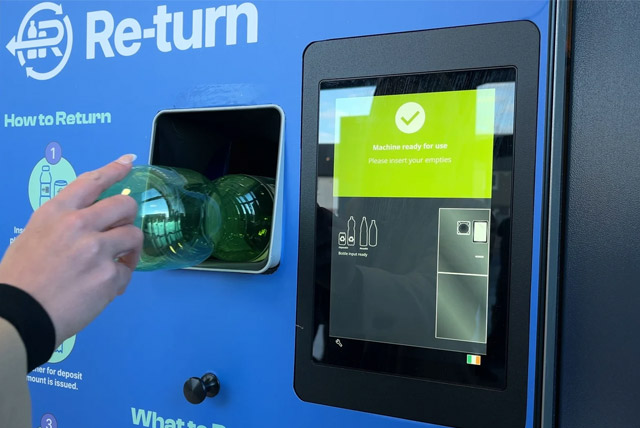The recent introduction of the Deposit Return Scheme (DRS) in Ireland is a significant step forward in our fight against plastic pollution. While the scheme has undoubtedly encouraged recycling, it hasn’t fully addressed the broader issue of single-use plastic consumption.
A recent news article from RTE reports 65 million in euros have remained unclaimed since the launch of the Deposit Return Scheme. This means either people haven’t claimed their deposit back or simply bin their plastic bottles.
It’s a clear signal that we need to rethink our consumption habits and explore more sustainable alternatives. One area where we can make a substantial difference is by reducing our reliance on single-use plastic water bottles. From microplastics infiltrating our water supply to the economic burden of purchasing bottled water, the true price of this seemingly innocuous product is far greater than its cost at the checkout.
The Hidden Costs of Bottled Water
While the DRS has brought attention to the issue of plastic waste, it’s crucial to understand the broader economic implications of our bottled water consumption.
While the cost of a single bottle might seem insignificant, the cumulative expense can be substantial. As per Statista, staggering €226.1 million is spent annually on bottled water in Ireland. This figure underscores the economic implications of our reliance on single-use plastic bottles. A study by the Pacific Institute revealed that the production of plastic water bottles consumes three times the amount of water used to fill them. This includes the water required for plastic production and bottle cleaning. Additionally, the energy required to transport bottled water across vast distances contributes to increased costs.
Furthermore, bottled water is significantly more expensive than tap water. It’s estimated that bottled water can be up to 2,000 times more costly than tap water.
The DRS, while intended to encourage recycling, has introduced additional costs for consumers. With unclaimed deposits and the inconvenience of returning bottles, the overall expenditure on bottled water has risen.
The Plastic Bottle Problem
The convenience of grabbing a plastic water bottle has become a daily habit for many of us. However, the environmental impact of this seemingly small choice is immense. Millions of plastic bottles end up in landfills and our oceans every year. This not only harms marine life but also contributes to the overall plastic pollution crisis.
The DRS is a step in the right direction, but it’s important to remember that it’s not a silver bullet. The DRS has brought to light the issue of unclaimed deposits, highlighting a lack of consumer engagement. However, the environmental and health implications of bottled water extend far beyond the deposit scheme. Recent studies have unveiled a shocking reality: bottled water is contaminated with microplastics. A study published in the Proceedings of the National Academy of Sciences found an average of 240,000 plastic particles in a litre of bottled water. These tiny plastic fragments, including nanoplastics, can potentially enter the bloodstream and have unknown health implications.
The Filtered Water Solution
Filtered water is a comprehensive solution to the challenges posed by both bottled water and tap water concerns. By removing microplastics, THMs, and other contaminants, a water filter provides clean, safe, and great-tasting water directly from your tap.
Why Choose Filtered Water?
- Unparalleled Purity: High-quality water filters, such as reverse osmosis systems, effectively eliminate a wide range of contaminants, including lead, chlorine, fluoride, bacteria, and microplastics. These contaminants in tap water can pose health risks. A water filter removes these impurities, ensuring you and your family consume safe and healthy water.
- Significant Cost Savings: By eliminating the need to purchase bottled water and dealing with deposit returns, you’ll enjoy substantial savings over time. The initial investment in a water filter is quickly offset by the ongoing costs associated with bottled water.
- Environment Friendly: Reduce your plastic footprint dramatically by switching to filtered water. You’ll be contributing to a cleaner planet by reducing plastic waste.
- Unmatched Convenience: Enjoy the luxury of fresh, clean water on demand. No more lugging heavy water bottles or relying on store-bought supplies. You can pair your water filter with a tri-flow tap to use it for mains cold and hot water and save space on the kitchen sink.
- Enhanced Taste and Odour: Many people find that filtered water tastes better than bottled water. By removing impurities and chlorine, water filters can improve the overall taste and odour of your tap water.
Don’t let the hidden costs of bottled water continue to impact your health and wallet. Choose filtered water for a sustainable and healthier future. Hydrotech Water Services offers a range of high-quality drinking water systems designed to meet your specific needs. Our systems effectively remove contaminants, improve water taste, and contribute to a healthier planet. Get in touch with our team for a free consultation.

